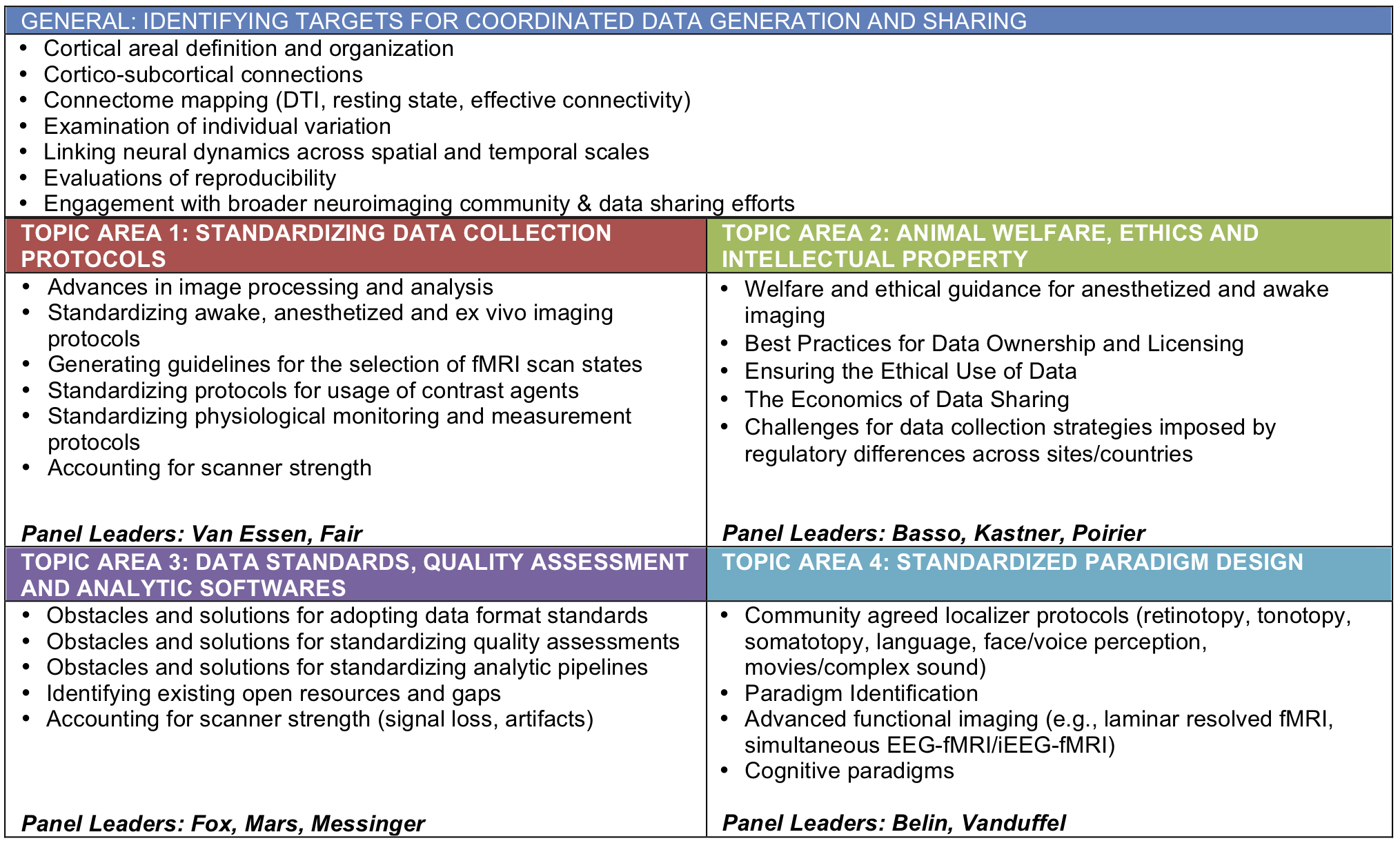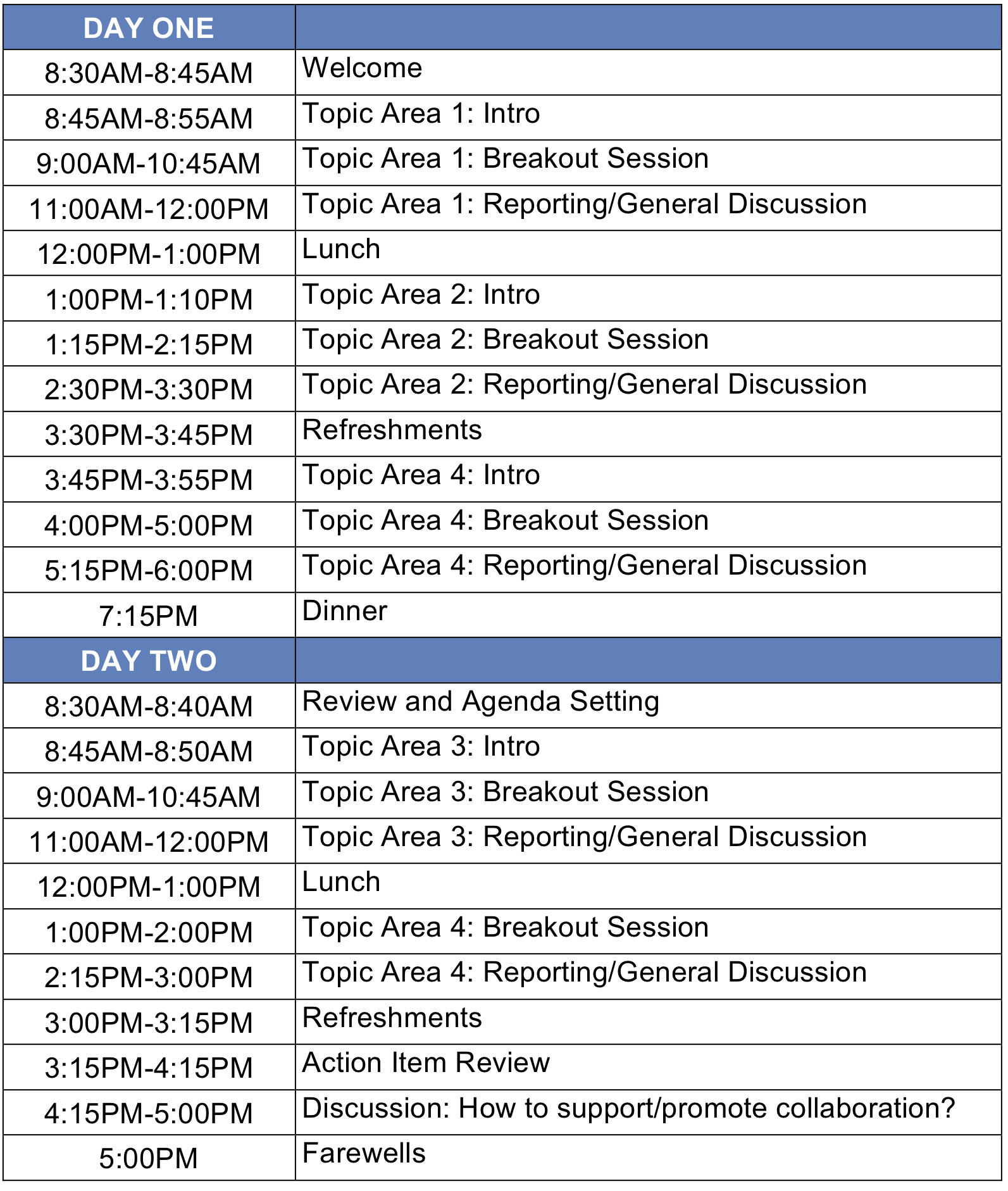GLOBAL COLLABORATION WORKSHOP
September 5-6, 2019 at the Wellcome Trust, London
Nonhuman primate (NHP) neuroimaging is a rapidly growing area of research that promises to massively re-scale comparative neuroscience, facilitating new discoveries and transforming translational research. This body of research has documented the utility of magnetic resonance imaging technologies to support in vivo examination of brain organization and function in the nonhuman primate. Recent efforts have not only demonstrated the ability to recapitulate key observations from postmortem examinations, but also provide novel insights into the organizational principles and functioning of the primate connectome. However, technological and methodological advances are outpacing the data resources and research workforce available, and there is a growing need to establish links between global initiatives in humans and other species using cutting-edge approaches. Relatively few centers have the necessary facilities and capabilities, and each center obtains data in its own way, creating barriers to neuroscientific progress.
To accelerate the pace of advancement, the PRIMatE Data Exchange (PRIME-DE) was recently established to promote a culture of collaboration and open science in the nonhuman primate neuroimaging community. The first step toward this goal was the establishment of a repository of openly shared data in 2017, which has given researchers from a range of disciplines access to data from more than 200 subjects across collected across laboratories around the world. As a next step, we are proud to announce the PRIME-DE Global Collaboration workshop, which will take place in London on September 5th and 6th, on the premises of the Wellcome Trust. The workshop aims to bring leading investigators from around the world together to develop action plans to:
- harmonize activities in the field of nonhuman primate imaging (e.g., data acquisition protocols, data standards, analytic methods and software).
- identify opportunities for rapidly advancing major neuroscientific goals through coordinated, multisite data collections.
- link this community to international efforts in humans and other species.




